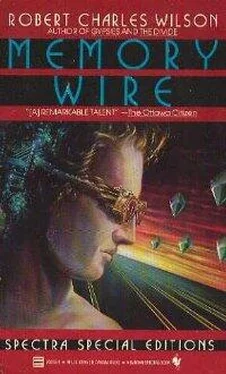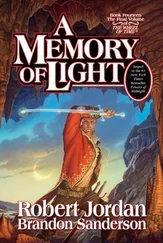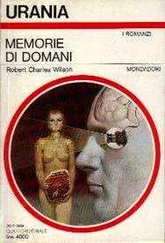Robert Wilson - Memory Wire
Здесь есть возможность читать онлайн «Robert Wilson - Memory Wire» весь текст электронной книги совершенно бесплатно (целиком полную версию без сокращений). В некоторых случаях можно слушать аудио, скачать через торрент в формате fb2 и присутствует краткое содержание. Год выпуска: 1987, ISBN: 1987, Издательство: Bantam Spectra, Жанр: Фантастика и фэнтези, на английском языке. Описание произведения, (предисловие) а так же отзывы посетителей доступны на портале библиотеки ЛибКат.
- Название:Memory Wire
- Автор:
- Издательство:Bantam Spectra
- Жанр:
- Год:1987
- ISBN:978-0-553-26853-9
- Рейтинг книги:4 / 5. Голосов: 1
-
Избранное:Добавить в избранное
- Отзывы:
-
Ваша оценка:
- 80
- 1
- 2
- 3
- 4
- 5
Memory Wire: краткое содержание, описание и аннотация
Предлагаем к чтению аннотацию, описание, краткое содержание или предисловие (зависит от того, что написал сам автор книги «Memory Wire»). Если вы не нашли необходимую информацию о книге — напишите в комментариях, мы постараемся отыскать её.
Memory Wire — читать онлайн бесплатно полную книгу (весь текст) целиком
Ниже представлен текст книги, разбитый по страницам. Система сохранения места последней прочитанной страницы, позволяет с удобством читать онлайн бесплатно книгу «Memory Wire», без необходимости каждый раз заново искать на чём Вы остановились. Поставьте закладку, и сможете в любой момент перейти на страницу, на которой закончили чтение.
Интервал:
Закладка:
In Virginia he had touched Tavitch when Tavitch was touching the stone; and Tavitch had looked into his eyes and had seen these same dreams. But they were not dreams. That was the terrifying thing. Somehow, through Tavitch, through the Pau Seco stone, it had actually happened. The dead had risen stubbornly; the dead had pronounced his name.
He lay in the darkness and was haunted by the memory. It was unnatural; it was alien, an alien ruse, a mind trick. The past was gone, the dead were dead and did not speak, and everybody dies; one day Oberg would be dead and silent, too, and that was as it should be: the broad and welcoming ocean of oblivion. It made life bearable. It was sacred. It should not be tampered with.
With this new thought he achieved ease and finally a sleep as calm as that vast and silent ocean; he did not dream; he woke strengthened in his resolve.
In the morning he made a second call to Tate.
“Keller is an Angel,” Tate said. “He’s working for an independent producer name of Vasquez. He’s in L.A. now, probably downloading at the Network compounds.” He regarded Oberg guiltily. “I assume this is what you wanted.”
“Yes,” Oberg said.
“You’re crazy, Steve, you know that? You’re fucking nuts.”
It might be true. It didn’t matter. The monitor blanked, and Oberg stared a long moment at his own reflection in it.
CHAPTER 21
1. Byron knew he was losing her. The knowledge was unavoidable.
He didn’t talk about the pills. They didn’t talk much at all. Talk was superfluous; worse, it might have required lies. He was watching when she tossed her pill bottle into a waste canal, and the act kindled a flare of hope in him. Later he found the pills themselves hoarded in a corner of her dresser; it was only the bottle she had discarded. It was a gesture he had been meant to see.
He understood that this was the old Teresa, the Teresa he had found on his doorstep years ago, dying and frightened of dying and wanting to die. The part of her that needed to survive had been silenced—silenced, he guessed, that day in the hotel room off the Ver-o-Peso—and he was helpless to call it back. He could not touch her that way, because she did not love him.
He was not accustomed to thinking about these things so bluntly, but the facts were as obvious as they were painful.
He ate dinner with her. There was bread in ragged loaves from the bakery stall, a cut of real beef. The meal represented very nearly the last of their money. Teresa ate mechanically; when she was finished she said she was going for a walk. “I’ll go with you,” Byron volunteered. But she shook her head. She wanted to be alone.
Alone with her pills, he thought. Alone to watch the Floats light up, alone to watch the waves roll in. She closed $ the door behind her, and he was left by himself in the float. A shack with the ticking of the bilge pump and the moan of the floorboards moving in the swell.
He thought of Keller.
Keller on the mainland. Keller drifting back into his | Network career, surrendering to the momentum of it.
Keller, whom she loved.
Keller, who might have helped her.
The thought was galling, but he could not resist it.
He used to feel sorry for Keller. Keller was the thing Byron might have been; victim of, Christ, a catalogue of things: his childhood, the army, his own cowardice. Forgivable sins, Teresa said one time. But now Keller had walked out, and that was inexcusable.
And here was the irony. Teresa was hurting… and the only thing I can do for her, Byron thought bitterly, is to call up Keller and beg him to come back. Beg him to take her away from me. It was galling. But he thought about the Angel tattoo on his arm and what it meant, and he was on the verge of doing it—getting a message to Keller through Keller’s Network producer, Vasquez—when there was a knock at the door.
He opened it cautiously.
Cruz Wexler stood outside. In the dusk he might have been a thousand years old. He labored at the salt air as if he could not draw nourishment from it. “I want to talk to her,” he said.
2. Teresa found him waiting when she came in from the boardwalk. Her reaction was an instinctive and immediate happiness: he was a link to a better time in her life.
She hugged him and sat down across from him, and only then realized how much these past weeks had aged him. He had been fading for years up in Carmel, of course, gone from celebrity to local eccentric, and she understood that the part of him that was showman and con-artist— maybe a large part of him—had resented this decline. But she had always believed he was sincere about the oneiroliths, sincere in the conviction that they belonged to the world, not just a coterie of government scientists. He was always talking about what he called the gnosis, the Mystery, a kind of conquering wisdom: his optimism had been as vast as it was naive. These last days must have shocked him.
They talked into the night. She had taken a pill while she was out walking, but only one, and the effect was a mild buoyancy which disguised her fatigue. (But she wouldn’t think about that.) Byron excused himself and took his bedroll into the back room. Then Wexler asked her about Brazil, and she found herself telling him about it—the story spilling out of her. She told him about Ray. Maybe because of the pill, she was able to say things that surprised her. She talked about the new oneirolith, its potency, the terrible memories it had provoked in her and in Ray. The wedge of knowing it had driven between them. She expressed her pain and surprise, was astonished when a tear trailed down her cheek: strange. She wasn’t sad. She felt all right.
Wexler nodded thoughtfully. His beard had grown out into gray stubble and his breathing was noisy and forceful, as if breathing were not automatic but a task he had to consider and perform. His eyes were full of gentle concern.
He talked about the Exotics.
He had spent his life in this kind of speculation. She understood that it was his nature, that he asked the questions no one else wanted to ask. Everybody was deriving technical data from the ’liths but nobody asked the profounder questions: maybe, he said, because they were afraid to. But Wexler had seen the trance landscapes, had glimpsed the whirlpool of history.
“If someone asked me now,” he said, “my guess would be that it was planned. All of it. There’s one kind of stone, very common, with its binary microvoltages: basically, it talks to machines. It says something altogether different to people like us. There are visions, a sense of significance, a sense of imminence. And then this rarer stone. It has even more to say. But at a price.”
She shook her head. “I don’t understand.”
“Neither do I. Truly. But I can guess. It depends, doesn’t it, on what the Exotics thought of us—the kind of creatures they took us to be. And I think, to them, we were broken things. Fractured. Divided.” He paused for breath. “Divided against ourselves. Not only collectively but individually. The mind against itself. I think it surprised them.”
She said, “They were different?”
“Whole, in some important way, where we’re broken. But you must have felt it.”
She had. The memory was warm but somehow chastening, a kind of rebuke. The,pill wearing off, she thought. She felt the gritty flush of sobriety.
“They anticipated us,” Wexler was saying. “They understood that we were good with tools. They guessed, I think, what we might do with our technology.”
She shook her head, confused still.
“Well,” he said, “what have we done? We can manipulate the mind itself. But we don’t heal it. We don’t make it whole. Instead we fracture it. We divide it. We have creche soldiers, we have battalions of neurotics. We train our psychoses as if they were dogs, to do tricks for us. We make ourselves over to suit our function.”
Читать дальшеИнтервал:
Закладка:
Похожие книги на «Memory Wire»
Представляем Вашему вниманию похожие книги на «Memory Wire» списком для выбора. Мы отобрали схожую по названию и смыслу литературу в надежде предоставить читателям больше вариантов отыскать новые, интересные, ещё непрочитанные произведения.
Обсуждение, отзывы о книге «Memory Wire» и просто собственные мнения читателей. Оставьте ваши комментарии, напишите, что Вы думаете о произведении, его смысле или главных героях. Укажите что конкретно понравилось, а что нет, и почему Вы так считаете.












